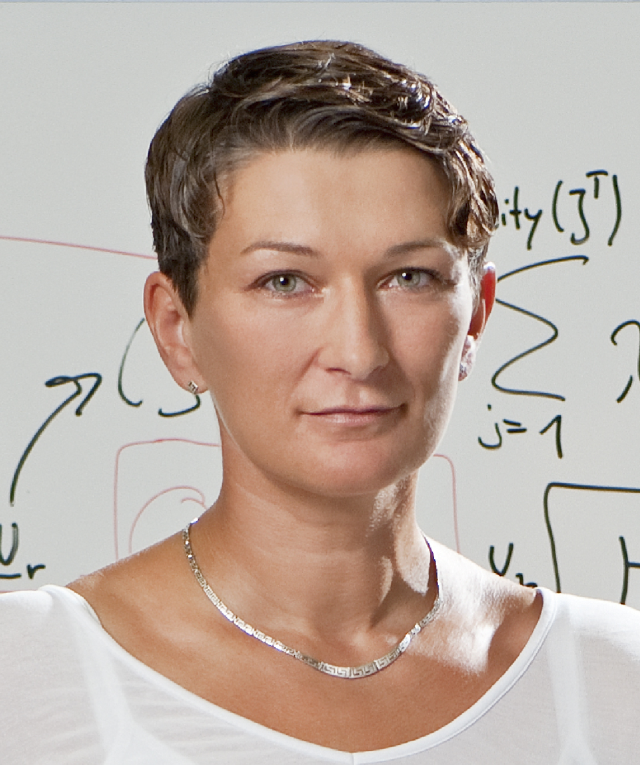Sandra Hirche
Technical University of Munich, Professor
Germany
High performance control for robots in extreme environments
Achieving a high level of autonomy of robots operating in extreme environments is particularly desirable but also particularly challenging due to uncertain and potentially varying operating conditions. By extreme environments we mean remote or hardly accessible environments where robots need to rely largely on local limited resources for their control implementation as for example underwater robots for collecting litter in marine environments. In this scenario the strong influence of nonlinear hydrodynamics on the motion of underwater robots and (often unpredictable) influences like currents as well as the distorted perception of the environment pose significant challenges for precise control and safe operation. Recent progress in machine learning for control promises high performance in such uncertain conditions, yet many of the available approaches cannot directly be applied due to the limited available resources in terms of local computational power and communication. Hence apart from the challenge of providing safety and performance guarantees for learning control, also the efficient implementation plays an important role.
In this talk we will present results on learning-based control with performance guarantees for nonlinear systems in uncertain environment and under resource constraints on the example of an underwater robotic system with manipulation capabilities. We will introduce approaches to evaluate data-efficiency in non-parametric modeling techniques and show that the control task matters in this respect. The promises of physics-informed learning techniques to improve learning performance in terms of data efficiency and under noisy training conditions will be discussed. Furthermore, different approaches to achieve realtime performance of non-parametric machine learning techniques given limited resources will be presented. While the proposed approaches promise to bring us a step further towards implementable high performance control for robots in extreme environments we will also discuss the remaining challenges as well as their limits.
Biography of the speaker
Sandra Hirche holds the TUM Liesel Beckmann Distinguished Professorship and heads the Chair of Information-oriented Control in the Faculty of Electrical and Computer Engineering at Technical University of Munich (TUM), Germany (since 2013). She received the diploma engineer degree in Aeronautical and Aerospace Engineering in 2002 from the Technical University Berlin, Germany, and the Doctor of Engineering degree in Electrical and Computer Engineering in 2005 from the Technische Universität München, Munich, Germany. From 2005-2007 she has been a PostDoc Fellow of the Japanese Society for the Promotion of Science at the Fujita Laboratory at Tokyo Institute of Technology, Japan. Prior to her present appointment she has been an Associate Professor at TUM.
Her main research interests include learning, cooperative, and networked control with applications in human-robot interaction, multi-robot systems, and general robotics. She has published more than 200 papers in international journals, books and refereed conferences. She has received multiple awards such as the Rohde & Schwarz Award for her PhD thesis, the IFAC World Congress Best Poster Award in 2005 and – together with students – Best Paper Awards of IEEE Worldhaptics and IFAC Conference of Manoeuvring and Control of Marine Craft in 2009 and the Outstanding Student Paper Award of the IEEE Conference on Decision and Control 2018.
In 2013 she has been awarded with an ERC Starting Grant on the “Control based on Human Models” and in 2019 with the ERC Consolidator Grant on “Safe data-driven control for human-centric systems”.
Sandra Hirche is Fellow of the IEEE. She has served as IEEE Control System Society (CSS) Vice-President for Member Activities (2014/15), as Chair for Student Activities in the IEEE CSS (2009-2014), as Chair of the CSS Awards Subcommittee on “CDC Best Student-Paper Award” (2010-2014), and has been elected member of the Board of Governors of IEEE CSS (2010-2013). She has been Co-Chair of the IFAC TC 1.5 “Networked Control Systems” (2010-2017).






